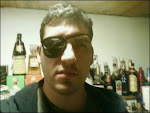On November 17th, Earth passes through the center of a meteor cloud numbered 1466 to produce the meteor shower known as the Leonids. This occurs every year, but this year in particular I've heard that it's supposed to be one of the better ones, with up to 500 meteor sitings per hour at the peak.
They claimed that the peak is specifically at 21:4 UT, which is unfortunate for those of us in North America, but we weren't completely left out. Around 1am we got that peak in Southern California and Monday Night/Tuesday Morning was the best time to witness these streaks of lights across our skies.

I was out there last night freezing my butt off and lost count on how many shooting stars saw. Many of which left huge streaks across the night sky for seconds after they flew by. It was really amazing and it was nice to get away from the light pollution that the city produces. But for shame, I had to miss the Big Bang Theory in order to be out there watching the night sky. My enjoyment of nerd circle jerking shows is not more powerful than my love at looking at the night sky and realizing how small and insignificant we all really are.
The neat thing about the Leonids is that there's actually two cycles going on...there's the yearly one, which is already pretty impressive, and then there's the 33-year cycle. The last time the 33-year shower took place was around the millennium. You think 500 meteors per hour is impressive? try forty thousand. Alas, we have another 20 years or so until the next one.

For North America, basically, anytime tonight between 1:00AM EST and sunrise you stand a good chance of seeing it. The rate is going to be on an average of one meteor every two to three minutes or twenty to thirty per hour; they'll be fairly bright.
We're only glancing the tail end of the cloud this year, but it should be brighter/ more frequent than in past years, though it's not as major a meteor shower event as, say, hundreds falling per minute, which happens about once a century from the Leonid Meteor Shower event.
And since They Might Be Giants was in town the last few days, let's let them fill you in on what a shooting star is actually...
A shooting star is not a star
Is not a star at all
A shooting star's a meteor
That's heading for a fall
A shooting star is not a star
Why does it shine so bright?
The friction as it falls through air
Produces heat and light
A shooting star or meteor
Whichever name you like
The minute it comes down to Earth
It's called a meteorite

Meteor showers generally last for more than one night. Even if you can't see them at peak where you are, you'll be able to see some if you go out and keep your eyes open. Don't worry so much, if you didn't go outside last night, you should be able to go outside tonight as well and catch some really remarkable shooting stars fly across our universe.
Anyway, good luck to all, don't expect fireworks, and do consider trying again for the Geminids on the night of the 13th and 14th (Sunday/Monday) of December.




No comments:
Post a Comment